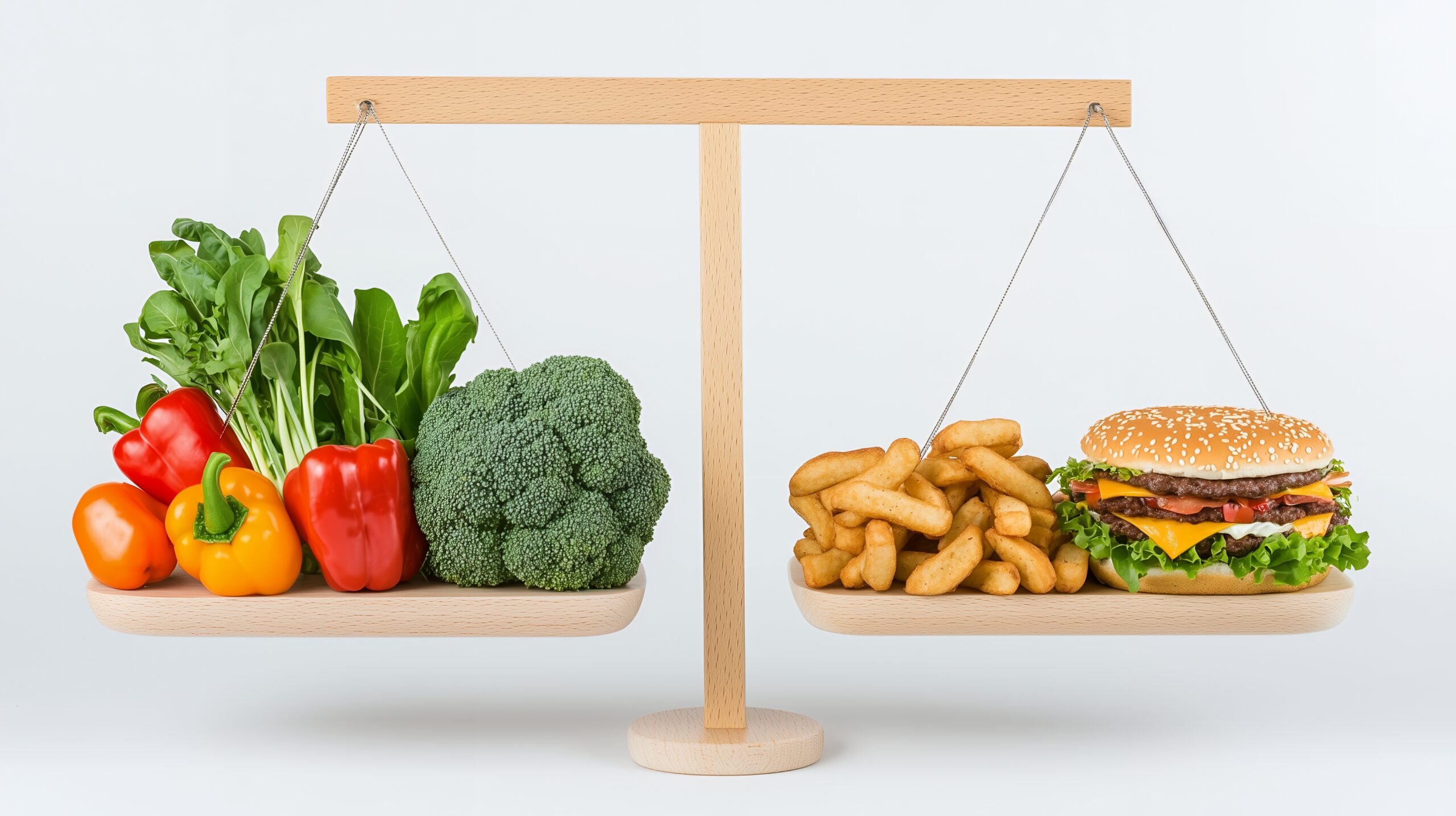Scientific reviews consistently show that weight loss requires an energy deficit—burning more calories than you consume.
Calorie restriction (typically 500–750 kcal per day) remains a proven initial strategy for weight loss.
This principle is grounded in the “calories in, calories out” model.
However, Harvard Health highlights that this “a calorie in and a calorie out” concept is antiquated.
Factors like metabolism, hormonal set points, and the gut microbiome significantly influence weight—meaning two people can eat the same calories but experience different outcomes.
Counting calories doesn’t factor in nutrient quality, satiety, or how processed a food is.
For example, 100 kcal from white rice isn’t equal to 100 kcal from millets.
Calorie tracking may also trigger anxiety or disordered eating in some individuals.
Calories Matter, But Quality Counts Too
While calorie quantity influences weight, focusing on high-quality foods like whole grains, fruits, vegetables, healthy fats, and minimally processed proteins is equally essential for both weight management and overall health.
Experts emphasize replacing low-quality foods with nutrient-rich options and adopting portion-controlled habits as a sustainable path.
1. Use Calories as a Learning Tool—Not the Endgame

- Awareness first: Counting calories can teach portion sizes, highlight hidden sources, and provide a baseline.
- Not permanent: Long-term calorie counting may feel restrictive; treat it as temporary.
- Shift gradually: Move towards meal planning and hunger-satiety cues.
- Practical tip: Track for 2–4 weeks, then use visuals like the “plate method.”
2. Combine Quality with Calorie Awareness

- Quality matters: 500 calories of soda vs. 500 calories of grilled chicken with vegetables have very different effects.
- Balanced approach: Choose whole grains, lean proteins, fruits, vegetables, nuts, and seeds.
- Calorie fine-tuning: If weight loss stalls, make gentle adjustments like reducing condiments or fried foods.
- Practical tip: Keep healthy swaps handy — roasted nuts instead of chips, fruit instead of dessert.
3. Consider Intuitive Eating

- Body signals first: Focus on hunger and fullness cues instead of rigid rules.
- No guilt mindset: Avoid labeling foods as “good” or “bad.”
- Research backed: Linked to better psychological health and sustainable weight management.
- Practical tip: Pause mid-meal to check hunger; eat slowly and mindfully.
4. Prioritize Long-Term Sustainability

- Avoid quick fixes: Crash diets often lead to rebound weight gain.
- Habit-based change: Focus on small, consistent changes like reducing late-night snacks.
- Lifestyle integration: Combine balanced eating with movement, stress management, and sleep.
- Practical tip: Ask: “Can I follow this way of eating 2 years from now?” If not, it’s unsustainable.
In conclusion, while calories are a significant factor in weight loss, the quality of the foods you consume plays an equally important role. By focusing on nutrient-dense foods, staying active, and being mindful about emotional eating, individuals can create a balanced approach to weight loss that promotes both physical health and well-being. Remember, a sustainable approach to weight loss involves more than just calorie counting; it encompasses a holistic view of health that includes nutrition, exercise, and mental health.
Lastly, the psychological aspect of eating and weight loss is often overlooked. Emotional eating can lead to increased calorie intake and weight gain. Understanding triggers for emotional eating and developing strategies to cope can help maintain a healthy relationship with food. Techniques such as journaling can provide insights into eating patterns and emotional connections to food.
The role of physical activity cannot be understated when discussing weight loss strategies. Engaging in regular exercise not only helps burn calories but also promotes muscle growth, which can increase your resting metabolic rate. This means that even when you’re not exercising, your body is more efficient at burning calories due to increased muscle mass.
Moreover, incorporating a variety of foods into your diet enhances not just your nutritional intake but also your meal enjoyment. For instance, instead of solely focusing on calorie counts, consider how different foods impact your overall well-being. Foods high in fiber, such as legumes and whole grains, promote fullness and help maintain blood sugar levels, which can be beneficial for weight management.
When it comes to weight loss, understanding the relationship between calories and food quality is crucial. Many people get caught up in the idea that simply reducing calories will lead to weight loss. However, this can often lead to nutrient deficiencies and a lack of satiety, which can sabotage long-term success. Thus, mindful eating, where individuals pay attention to what they eat and how it makes them feel, can be a powerful tool for sustainable weight management.










